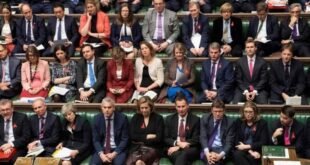Healthcare Professionals Question the Credibility of Government Promises
Recent statements made by Prime Minister Abiy Ahmed in Parliament regarding the demands of healthcare professionals have caused significant concern among medical workers. Many now doubt whether the promises made to them will ever be fulfilled, leading to a growing sense of disillusionment.
Healthcare professionals who spoke with Addis Standard expressed their frustration, stating that the Prime Minister’s speech raised serious questions about his credibility. They questioned whether the issues previously promised to them would be addressed effectively.
One healthcare professional, who participated in earlier discussions and requested anonymity, shared details about two rounds of meetings held after the submission of healthcare workers’ demands. The first session took place from June 25 to 28, 2025, at the Kuriftu Resort in Bishoftu. Around 100 healthcare professionals from across the country attended, engaging in detailed discussions with Health Minister Dr. Mekdes Daba and other senior ministry officials.
The group was divided into four teams, each with at least one Ministry of Health representative. Together, they reviewed twelve demands and consolidated them under seven main agendas. They also outlined common solution directions.
Following this, the Ministry recorded the demands that could be resolved within their capacity and promised to provide answers by issuing regulations and directives within a short period. This initial meeting was followed by a second session with the Prime Minister himself, where over 300 healthcare professionals participated. Four representatives presented the consolidated demands and proposed solutions directly to the Premier.
However, the Prime Minister’s response was described as “confusing.” He acknowledged the validity of their concerns but claimed that “politicians had interfered in the way the questions were framed.” Despite this, the healthcare professional remained hopeful, stating, “Since some major promises were made to us, we are waiting with emphasis and hope to see if the implementation will be according to his word.”
Disappointment soon followed when the Prime Minister’s remarks in Parliament contradicted the promises he had made during the earlier discussions. During the parliamentary session, he mentioned numerous projects that had been visited and declared, “Ethiopia will be free from begging in 15-20 years; we are building a country with a great vision for our children. Even if we are hungry, let’s be patient and create hope for our children, let’s sacrifice and participate in nation-building.” He then promised to address some of their demands soon.
Another healthcare worker, who also spoke with Addis Standard under the conditions of anonymity, criticized the Prime Minister’s suggestion in Parliament that “we agreed that we must sacrifice and transcend the country,” calling the claim “far from the truth.” The health worker noted, “He spoke contradictorily in Parliament,” adding, “We demand an immediate answer to our existential questions.”
The worker warned that if the government fails to provide “appropriate and tangible answers” within two months, they will launch a “major social awareness and rights advocacy campaign” in August, with a work stoppage planned for September.
A doctor who also participated in previous discussions with the Prime Minister, speaking with Addis Standard under the conditions of anonymity, stated, “Our suffering is beyond our capacity; both our families and we are hungry.” The doctor recalled that salary and benefits improvements were promised during the meeting but expressed disappointment with Abiy’s recent statements in Parliament, saying they “have raised a question of credibility for us.”
The doctor emphasized that healthcare professionals are determined to face the country’s problems and help it move forward. “If we have to sacrifice as a country, it shouldn’t just be the healthcare professionals—everyone should fulfill their responsibility.”
When addressing Parliament, the Prime Minister remarked, “Our responsibility is to free our children from poverty by making sacrifices, so we agreed with the doctors to accept the suffering and lead Ethiopia forward.”
MP Ababaw Dessalegn, a representative of the National Movement Amhara (NaMA), had previously noted that government employees and the lower-income segment of society repeatedly state that they cannot cope with the current cost of living. He also recalled that healthcare professionals had raised their “basic demand for bread” through strike actions and accused the government of suppressing their demands by politicizing them.
In response, the Prime Minister asserted, “There is no question about whether salaried employees have been affected; they have been affected.” He insisted that the doctors’ demands were not rejected or politicized but acknowledged that “there were people who tried to capitalize on this appropriate demand.” He concluded, “We agreed with the doctors to accept the suffering and lead Ethiopia forward, shook hands, and parted ways.”
 Info Malang Raya Its All About World News
Info Malang Raya Its All About World News




